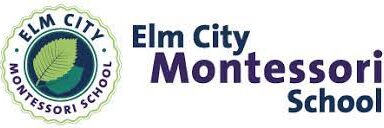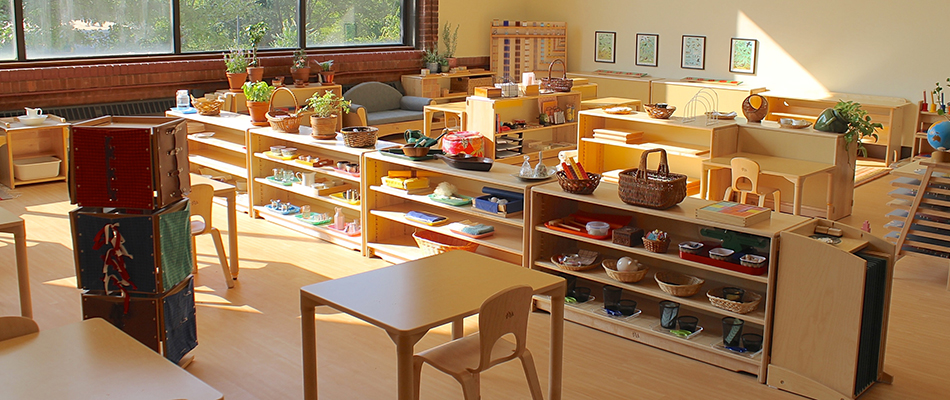In 2011, a local parent group led by three moms—two born and raised in New Haven—began exploring public school options for their preschoolers. Committed to public education, but challenged by lack of access to their schools of choice, the group began envisioning the ideal school for their young children. They imagined a racially, ethnically and economically diverse school with a nurturing, child-centered approach to early education and strong parent engagement. In exploring different school models, they discovered Montessori education and several successful public Montessori schools in Hartford. In the fall of 2012, parents and other community supporters organized, requested and received the support of the New Haven Board of Education and other community leaders to work with them to establish a public Montessori school in New Haven.
The result of that collaborative work is Elm City Montessori School (ECMS). Working in close partnership with New Haven Public Schools, ECMS is New Haven’s first public Montessori option, it plays a significant role in the district’s efforts to forge meaningful, coherent school improvement for all of New Haven’s families. Grounded in a research-based, time-tested curriculum model and fueled by a visionary commitment to early learning and robust family engagement, Elm City Montessori School is on the leading edge of New Haven’s efforts to provide a portfolio of exemplary educational options designed to ensure that all New Haven students complete high school equipped with 21st Century skills and ready to lead successful lives. ECMS’s Montessori program is inspired by the design and implementation of Annie Fisher Montessori Magnet School, a high-performing public Montessori school in Hartford, Connecticut. Annie Fisher has distinguished itself by meeting high standards of student achievement through a meticulous, fully implemented Montessori program.
Start Early and Involve Families
In addition to replicating the success of Annie Fisher in New Haven, the founders of ECMS have placed particular emphasis on two elements of full Montessori implementation that are also recognized as best practice for serving vulnerable families (Epstein, 2010; Reynolds, et.al, 2001). Montessori education intentionally begins in early childhood. Consistent with research demonstrating the intensity of brain development from birth to six, along with the presence of sensitive periods for development, the Montessori model makes the most of this extremely fertile period for learning. Our program represents a significant investment in early childhood education, which will yield returns extending well beyond the elementary years (O’Brien & Dervarics, 2007). ECMS will produce transformative outcomes for children by serving the entire family. We aim for 100% family involvement in ECMS activities and will achieve this goal through a coordinated plan ongoing engagement. Outreach begins prior to enrollment, with open houses, information sessions, and community gatherings focused on Montessori education. Once enrolled, families experience an extended orientation/induction program including home visits designed to cultivate a robust school/home partnership focused on the success of all our students.
Serve All Learners
Montessori instruction is, by design, entirely differentiated and individualized. Teachers use an array of specially designed, developmentally appropriate, concrete, learning materials and lessons that are sequenced progressively. Instruction is tailored to the individual needs of students. Students are grouped according to skill level and receive small group instruction at their level. They receive assignments that vary in complexity according to their ability levels and/or learning styles. They are allowed to devote different amounts of time to achieve mastery of tasks. Such differentiation increases the effectiveness of instruction for individual children and promotes achievement dramatically. The most important aspect of the teacher’s work becomes that of gathering data and continuously assessing students’ performance in order to make appropriate and timely instructional interventions that ensure that every child achieves academic success. Dr. Maria Montessori developed her educational method initially through working with disabled children in the early 1900’s. The hands-on, carefully sequenced program of exploration and experimentation proved to be remarkably successful in addressing developmental challenges. Today, many of the interventions used to support children who are not achieving stated performance standards are components of the Montessori method (Cossentino, 2010). Children who enroll with developmental delays, language deficits, and any other learning challenge that threatens appropriate progress will be served through a rigorous support process that begins with basic classroom modifications, and may progress to more intensive interventions based on the child’s needs. ECMS functions in full accord with federal (IDEA), state, and local laws and regulations with regard to children with special needs. We are committed to providing an inclusive learning community where every child develops his/her full potential and individual differences are respected and embraced. We fully support children identified with needs for special education and related services.
Data-Informed Instruction for Continuous Improvement
Consistent with our mission and educational philosophy, ECMS staff use a wide range of assessment strategies to gain a dynamic understanding of the whole child. A growing research base affirms the importance of non-cognitive skills such as persistence, adaptability, motivation, trustworthiness, and self-regulation for success in life (Heckman & Rubinstein, 2001; Heckman, 2008). Research further demonstrates that these social and emotional skills are among the most potent outcomes of Montessori education (Lillard & Else-Quest, 2006; Lillard, 2012). For this reason, a wide variety of assessment tools and procedures will be employed to measure both cognitive and non-cognitive outcomes for students. Assessments such as the Ages and Stages Questionnaire, the Flanker Inhibitory Control and Attention Task, and the Social Skills Rating System will be administered alongside more traditional measures of academic achievement. The results enable us to produce a complete profile of each our students and assess the effectiveness of our program.
Governance and Leadership
The school’s charter, mission, and bylaws are administered by its Board of Trustees, a not-for-profit organization called Elm City Montessori School, Inc. The Board has final authority for the policy and operational decisions of the school in accordance with its Charter and the Charter School Law. The Board’s structure is designed to focus its energies on governance including developing and implementing policies, supervision of the academic and non-academic operations of the school, compliance with fiduciary and legal requirements and financial oversight. The Board will hire, supervise, and evaluate the school Principal, and will delegate management of the school to the Principal and through him or her to the professional staff of the school.
The Montessori model recognizes the importance of teamwork and the value of heterogeneous groupings. This belief will be reflected throughout the school, whether in classrooms or offices. To this end, the school’s leadership team will be made up of three complementary positions beyond the principal. These positions require very different skill sets: Director of Operations, Director of Curriculum, Data, and Assessment, Director of External Affairs and Community Engagement. The leadership team will report to the Principal. The team will meet regularly to assess the school’s progress in meeting its mission, vision, and strategic goals. Further, they will engage in short- and long-term planning and make school-wide decisions accordingly.
Enrollment and Managed Growth
Any family who (a) is committed to Montessori education and (b) resides in New Haven or surrounding towns may apply for admission to Elm City Montessori School. All Montessori classrooms have multi-age groupings. Additional students will be added every year, and the age range of the school will increase by one each year until we reach a total of approximately 350 students in grades Prek3-8th grade.
ECMS follows a comprehensive outreach plan designed to stimulate interest in the school on the part of parents and guardians in the community including English and Spanish brochures, and targeted outreach to local day cares and Head Start Programs, afterschool programs, community groups, libraries, parent advocacy groups, local social services providers, churches and early intervention providers. The team will make an extra effort to let families of students with disabilities and ELLs know that they are eligible to apply. It will inform Day Care and Head Start Program directors of the support the school will provide for students with special needs and English Language Learners.
Collaboration and Sustainability
The school founders deliberately chose to use the local charter model for the school in order to forge a collaborative relationship with New Haven Public Schools. The founders are well aware of the New Haven School Change initiative, and we believe that ECMS fulfills both the Vision and the Strategies for Success that are in place. Ultimately, ECMS will be an important part of NHPS’s efforts to:
- Eliminate the gap between the performance of New Haven students and the rest of the State;
- Cut the dropout rate in half;
- Ensure that every graduating student has the academic ability and the financial resources to attend and succeed in college.
As a local charter, ECMS will receive its funding from the district. Consistent with one of the key intentions of charter schools, ECMS has substantial autonomy surrounding curriculum and pedagogy in order to serve as a “catalyst in the restructuring of our public schools” (Connecticut State Department of Education, 2013). Like other New Haven Public Schools, our teachers, administrators, and staff work under the appropriate union contracts.
Students at ECMS are subject to the same testing procedures, and we welcome the same set of students as other schools in the district. Our teachers and administrators are encouraged to collaborate and take collective responsibility for student outcomes. Overall, ECMS is a partner in New Haven’s School Change Initiative, providing a model for school change that can greatly enhance the future of public schooling in New Haven.

